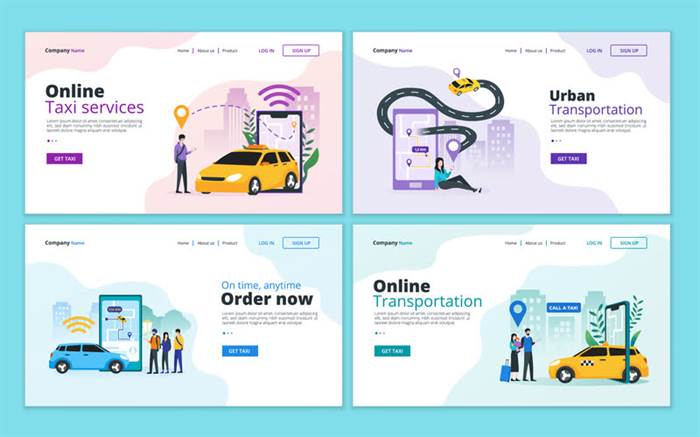Its AI-enabled media planning tool often recognized as Alice is meant to streamline the method of plotting out a media marketing campaign strategy that successfully reaches the best goal audiences. Marketers are allocating increasingly of their budgets for synthetic intelligence implementation as machine learning has dozens of makes use of in relation to efficiently managing advertising and ad campaigns. AlphaSense created an AI-powered financial search engine to help investment firms acquire an informational edge. Using a combination of linguistic search and pure language processing, the program can analyze key data points throughout varied monetary institutions.
Specializing in AI consulting and improvement companies, LeewayHertz is dedicated to boosting your manufacturing operations into the digital forefront. With a demonstrated track record in implementing a wide selection of superior AI fashions and options, LeewayHertz is poised to assist you in initiating or advancing your AI journey inside the manufacturing sector. AI agents/copilots don’t just improve the efficiency of operational processes but in addition significantly enhance the standard of product development and strategic decision-making. In 2023, the bogus intelligence in manufacturing market stood at $3.2 billion, with a projected progress to $20.8 billion by 2028, reflecting a exceptional CAGR of forty five.6%. This data emphasizes the promising future of AI in manufacturing, signaling an opportune moment for companies to speculate on this know-how for substantial enterprise outcomes.
Additionally, AI-driven design instruments improve collaboration by offering real-time suggestions and automating repetitive duties, in the end accelerating the product growth cycle and fostering innovation in manufacturing. AI transforms supply chain management by enabling predictive analytics, optimizing inventory, bettering demand forecasting, and streamlining logistics. For example, an automotive parts producer can utilize ML fashions to forecast spare elements demand, optimizing inventory and lowering prices. As we’ve explored throughout this publish, AI is driving elevated productivity, value savings, enhanced buyer experiences, data-driven decision-making, and the event of recent products and services. By harnessing the capabilities of machine learning, deep learning, and natural language processing, businesses can automate processes, optimize operations, and uncover priceless insights that drive progress and profitability. AI for managing buying value variance in manufacturing is a strategic software that considerably enhances procurement efficiency and value management.
AI-driven demand forecasting minimizes stockouts and surplus stock, showcasing how progressive technologies improve decision-making and supply chain resilience in the aggressive retail sector. AI’s presence in manufacturing is not new, but latest advancements in machine studying, robotics, and information analytics have accelerated its adoption. From predictive maintenance and quality management to supply chain optimization and autonomous production lines, AI is reshaping every aspect of producing operations.

Additionally, we guarantee seamless integration of AI systems with existing technological infrastructures, enhancing operational effectivity and decision-making in manufacturing companies. These developments spotlight AI’s significance to manufacturing and trade improvement, enhancing its resilience, agility, and competitiveness. AI’s results on these industries will only intensify as it grows, solidifying its position sooner or later manufacturing and industrial sectors.
Shot Blasting Simulations Lower Prices
Also, as per a latest survey carried out by VentureBeat, it has been reported that 26% of organizations are actually actively using generative AI to improve their decision-making processes. Furthermore, 66% of producers incorporating AI into their daily operations report a rising dependence on this transformative expertise, highlighting an accelerating pattern towards AI adoption in the manufacturing sector. This might embody customer service, data analysis, process automation, and decision-making.
- Additionally, AI-powered simulations facilitate the creation of prototypes and digital testing, accelerating the innovation cycle.
- Primarily, it empowers corporations to make data-driven choices, analyzing historic sales data, market developments, and external components.
- However, success on this transformative journey requires a holistic approach, encompassing technological adoption, workforce empowerment, and moral stewardship.
- Generative design software, a major AI utility, accelerates design iterations, fostering revolutionary products.
- AI Automation and AutoML 2.0 are crucial applied sciences that may handle this Skills Gap and speed up digital transformation in manufacturing.
For producers, embracing AI now represents a strategic transfer in path of modernizing operations and staying ahead in a aggressive panorama. ZBrain redefines patent administration for manufacturing enterprises, addressing challenges associated to complex portfolios, time-consuming analysis, authorized intricacies, and strategic decision-making. In the aggressive manufacturing panorama, safeguarding intellectual property is crucial, and ZBrain’s AI-driven apps streamline the patent administration course of. The initial phase involves automated data collection, the place ZBrain gathers pertinent information similar to existing patents, prior art references, authorized compliance records, and industry developments.
With AI, manufacturers can make use of laptop imaginative and prescient algorithms to analyze images or movies of merchandise and parts. These algorithms can identify defects, anomalies, and deviations from quality standards with exceptional precision, surpassing human capabilities. A digital twin is a digital replica of a physical asset that captures real-time information and simulates its behavior in a digital surroundings. By connecting the digital twin with sensor data from the equipment, AI for the manufacturing industry can analyze patterns, establish anomalies, and predict potential failures. AI is revolutionizing the logistics and transportation trade by bettering supply chain management via the use of machine learning and predictive analytics. Additionally, AI-powered robots are being used in warehouses for sorting and packaging merchandise, and AI algorithms are getting used to search out the quickest cargo routes and help last-mile supply.
This enables intuitive communication and seamless collaboration between people and machines. Combining AI and cobots presents opportunities for elevated productivity, improved ergonomics, and environment friendly resource utilization in manufacturing processes. At LeewayHertz, we design tailor-made AI options that cater to the distinctive needs of producing companies. Our strategic AI/ML consulting allows manufacturers to leverage AI for enhanced manufacturing efficiency, improved high quality control, and optimized supply chain administration. HR teams guarantee workforce adherence to safety pointers, necessitating common compliance reporting. AI assists by automating knowledge evaluation for proactive tools maintenance, streamlining report technology, and utilizing predictive analytics to anticipate safety issues.
Ai For Consumer-based Companies
For example, AI can prioritize orders based on supply deadlines, stock availability, and buyer importance, guaranteeing that the most critical orders are fulfilled first. Moreover, AI can identify patterns and insights from historical order knowledge, enabling producers to anticipate future demand spikes or declines and adjust their manufacturing schedules and stock ranges accordingly. This proactive strategy to order administration enhances operational effectivity and improves buyer satisfaction by ensuring well timed and accurate order success, lowering lead instances, and minimizing stockouts or overproduction.
It employs generative AI to accelerate the overall design iteration course of, making means for optimized and innovative product designs. This application of AI significantly speeds up the creation of new products by allowing for rapid exploration of design options based on particular business aims. For example, by leveraging the ability of machine learning in manufacturing, semiconductor corporations can establish part failures, predict potential issues in new designs, and suggest optimal layouts to reinforce yield in IC design. For occasion, BMW employs AI-driven automated guided automobiles (AGVs) in their manufacturing warehouses to streamline intralogistics operations. These AGVs follow predetermined paths, automating the transportation of provides and completed products, thereby enhancing inventory administration and visibility for the company.
How Appinventiv’s Customized Ai Options Might Help You Achieve Manufacturing Excellence
Compounding this problem, manufacturing is predicted to face a severe workforce shortage over the subsequent 10 years as Baby Boomers retire. AI Automation and AutoML 2.0 are critical applied sciences that can handle this Skills Gap and speed up digital transformation in manufacturing. By embracing AI technologies and understanding their impression, manufacturers can unlock unprecedented opportunities for progress and competitiveness. However, success in this https://www.globalcloudteam.com/ai-implementation-in-business-is-it-necessary-to-do/ transformative journey requires a holistic approach, encompassing technological adoption, workforce empowerment, and moral stewardship. As AI continues to evolve, producers must remain adaptable and proactive, leveraging its potential to form the means forward for manufacturing for generations to come. Integrating AI options into existing business methods and processes is usually a complex and difficult endeavour.
This use case leverages artificial intelligence to scrutinize and predict fluctuations in raw material prices, which instantly impact manufacturing margins. This forecasting takes into consideration historical purchase data and prevailing market developments, establishing a benchmark for evaluating costs throughout totally different suppliers. Consequently, manufacturers acquire the advantage of a centralized procurement data management system, streamlining the oversight of components acquired from varied vendors. This AI-driven strategy not only optimizes purchasing decisions but additionally guards in opposition to unexpected price variances, thereby safeguarding and potentially improving profit margins. AI methods like machine learning analyze manufacturing data to determine inefficiencies and optimize manufacturing processes.
Streamlined Paperwork
Manufacturers could make data-driven decisions to streamline procurement, inventory administration, and distribution processes. By optimizing these features, manufacturers can obtain value financial savings, reduce stockouts, improve delivery times, and improve overall supply chain effectivity. This permits producers to reply quickly to market calls for, reduce stock holding prices, and enhance buyer satisfaction. AI aids market trends analysis in manufacturing by analyzing huge information sets to establish patterns and emerging developments. It can predict consumer demand, optimize supply chains, and improve product improvement by extracting valuable insights from structured and unstructured information. AI-driven analytics assist analysis departments make data-driven decisions, enhance forecasting accuracy, and stay competitive in a quickly evolving market.

In this era of digital acceleration, AI serves as a strategic ally, providing tailor-made use circumstances across main industries. From healthcare and finance to manufacturing and retail, the transformative influence of AI is reshaping traditional paradigms. By leveraging ML algorithms, predictive analytics, and advanced automation, companies can harness the ability of AI to streamline operations, optimize useful resource utilization, and gain insights into shopper behavior and market tendencies. According to a report by Grand View Research, by 2030, the worldwide AI market measurement is predicted to succeed in $1,811.8 billion, up from $136.6 billion in 2022, with a 38.1% CAGR.
Advantages Of Ai For Businesses
Manufacturers can use these forecasts to align manufacturing and inventory levels with anticipated demand. This minimizes stockouts, reduces excess stock, and improves supply chain responsiveness and buyer satisfaction. Accurate demand forecasting allows producers to optimize production schedules, prevent overproduction or inventory shortages, and improve total supply chain agility. Volkswagen is a distinguished instance of a enterprise using synthetic intelligence within the manufacturing 5.0 business to optimize assembly lines. They improve the effectiveness and caliber of their production operations by using AI-driven options. Volkswagen analyzes sensor information from the meeting line utilizing machine learning algorithms to forecast upkeep requirements and streamline operations.

By harnessing AI’s capabilities, manufacturing companies can overcome hurdles corresponding to fault detection, error discount, and upkeep optimization. AI’s capacity to learn from huge datasets can considerably enhance the precision and effectivity of production cycles, diminishing the need for guide intervention in the manufacturing sector. Moreover, AI-powered analytics equip organizations with the tools that enable them to make knowledgeable choices, optimize resource allocation, and enhance inventory management.
By specializing in these key areas, manufacturers can efficiently undertake AI in a way that’s both accountable and useful to the business, its employees, and society at large. Unlock the potential of AI in manufacturing with LeewayHertz’s experience.Tailored options for enhanced effectivity. According to a Deloitte survey, manufacturing emerges as the leading trade in knowledge era, highlighting a considerable quantity within the sector. This underscores the industry’s impactful presence in the information landscape, emphasizing the necessity for manufacturers to embrace AI for analyzing this huge amount of generated information. In the absence of standards and customary frameworks, plant engineers should determine one of the only ways to attach their machines and techniques, and which sensors or convertors to install.
Let’s take a deeper dive into other artificial intelligence examples additional demonstrating AI’s numerous functions. While there are respectable considerations about the rapidly advancing expertise, there are additionally numerous synthetic intelligence examples that show it’s shaping the future for the better. Consider how you’ll deploy your AI models — within the cloud, on-premises, or in an air-gapped setting — and plan the means to monitor and observe the AI models’ success once they’re deployed.

